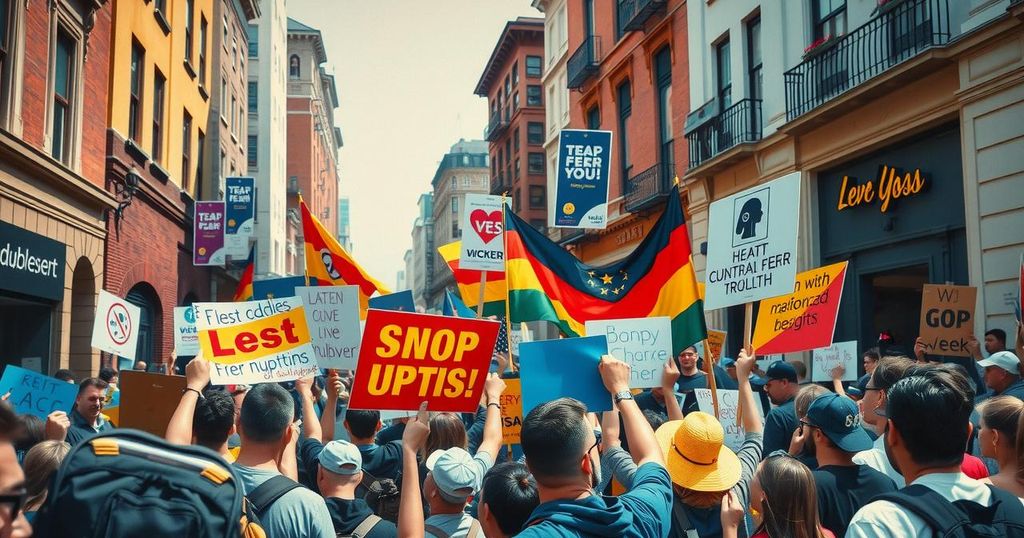Tunisia has commenced a trial involving 40 opposition figures accused of plotting against the state. Critics claim these charges are intended to silence dissent amid President Kais Saied’s rule, which some argue has deteriorated democracy. The trial faces condemnation from international human rights organizations over fairness and judicial independence.
A court in Tunisia has initiated a significant trial involving 40 individuals, notably including leading opposition figures. These defendants comprise politicians, journalists, lawyers, and human rights advocates. They face accusations of plotting against the state; however, activists argue that these charges are unfounded and represent a government initiative to suppress dissent.
Notably, nine defendants were barred from attending the court session due to claims by authorities that they posed a danger if released. Their legal representatives and protestors outside demanded their right to defend themselves in person. Several have already spent over two years imprisoned in anticipation of the trial, while others have fled Tunisia.
The charges brought against some defendants may carry severe penalties, including potential death sentences, with allegations encompassing plotting against state security, terrorism, and clandestine affiliations with foreign officials. Critics assert that President Kais Saied is leveraging the judiciary to eliminate opposition.
Since assuming full government control in 2021, Saied has faced accusations of undermining Tunisia’s civil liberties. Furthermore, his crackdowns are alleged to have eroded the democratic foundations established during the Arab Spring. In response, Saied has characterized the defendants as “traitors and terrorists.” His supporters contend that he is addressing the nation’s pressing issues, such as rampant inflation, unemployment, and widespread corruption, attributing the country’s difficulties to former political leaders.
International human rights organizations have denounced the trial. The International Commission of Jurists remarked that the treatment of the accused preceding the trial was inequitable and cast doubt on the court’s impartiality.
The trial of 40 opposition leaders in Tunisia has incited significant outrage, drawing attention to allegations of political repression under President Kais Saied. While authorities insist on national security, critics and human rights groups underscore the precarious state of democracy and civil liberties in Tunisia. This situation raises pertinent questions regarding judicial independence and the broader implications for political dissent in the country.
Original Source: globalsouthworld.com






